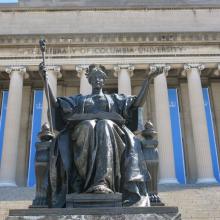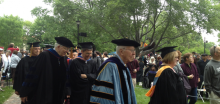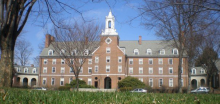Most admissions offices in colleges and universities are organized by region with admissions counselors assigned to geographic areas and identified as regional representatives. I live and work in Westchester County, where many of my clients attend high school. When I call a school to gain information on behalf of a client I’m often asked where I’m calling from.
Published Articles
Too often there is a disconnect between what families and colleges understand to be important in college admissions. I want to inform families about the college’s point of view and its impact in the review of applications and determination of admission decisions. In the absence of that kind of information, families can find themselves reacting to all the noise and unknowns out there rather than acting to identify and pursue what is in their own best interest.
There is so much written about the college search and application process that fuels a sense of anxiety and confusion on the part of students and their parents – about the competition to get into college, the uncertainty about gaining admissions and the high cost of tuition, to name a few. In contrast, too little is written about the numerous elements over which high school students and college applicants actually have control. Four of those elements and nine general actions students can take to maintain a sense of control are identified below.
As high school juniors and sophomores begin to make sense of the college terrain and research and visit colleges to determine where they will later apply, understanding the differences between liberal arts and sciences colleges and universities is an important first step.
Liberal Arts and Sciences Colleges:
When high school students visit and research colleges and universities, it is important that they learn about a school’s mission, values and founding principles. That information is useful as they consider whether a school appeals. It’s also helpful as they try to assess whether that school is a place that will help them achieve their goals and where they would want to make their home for the next four years.
While students and parents think that the process by which colleges choose whom to admit is all about the qualifications of the applicant, in reality it is about a whole lot more. Ultimately colleges are self-serving. Many of their admission policies and practices are designed with their own interests and agendas in mind. Knowing that fact and understanding what colleges generally value in the process helps parents and students. Translating that knowledge into action makes students stronger applicants.
Words of wisdom to high school seniors and their parents as they eagerly await Early Admission decisions now and Regular Admission decisions later.
Jane’s #1 Tip: Visiting a College Can Be Very Important
Visiting a college is an important part of the search and exploration process. Research by colleges shows that applicants who visit are more likely to enroll. Therefore, many colleges treat the visit as proxy for “likely to enroll” and as a positive factor in their admissions deliberations. Visiting is one of the elements of “demonstrated interest” that many colleges like to see.
Dear Student Editors:
As a professional who understands college admissions, I want to lend my perspective, share insights and offer advice to students.
How does Jane C. Hoffman, MBA, of College Advice 101 in Larchmont support students with their college search and application process and ensure their success?










